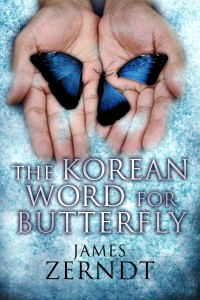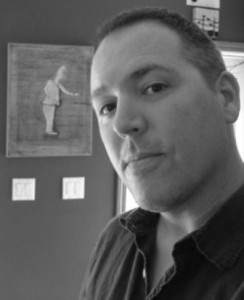Publisher: Create Space, March 27, 2013
ISBN-13: 978-1483997476
Category: Literary Fiction, South Korean Society
Tour Dates: February, 2014
Available in: Print & ebook, 329 pages
ISBN-13: 978-1483997476
Category: Literary Fiction, South Korean Society
Tour Dates: February, 2014
Available in: Print & ebook, 329 pages
Set against the backdrop of the 2002 World Cup and rising anti-American sentiment due to a deadly accident involving two young Korean girls and a U.S. tank, The Korean Word For Butterfly is told from three alternating points-of-view:
Billie, the young wanna-be poet looking for adventure with her boyfriend who soon finds herself questioning her decision to travel so far from the comforts of American life;
Moon, the ex K-pop band manager who now works at the English school struggling to maintain his sobriety in hopes of getting his family back;
And Yun-ji , a secretary at the school whose new feelings of resentment toward Americans may lead her to do something she never would have imagined possible.
The Korean Word For Butterfly is a story about the choices we make and why we make them.
It is a story, ultimately, about the power of love and redemption.
Praise for Korean Word For Butterfly:
“5 stars. Full of fresh, original writing.” -THE KINDLE BOOK REVIEW
“This is one of the best young novels of the year.” -Grady Harp, Amazon TOP 50/HALL OF FAME REVIEWER
“Zerndt is a wonderful writer, and BUTTERFLY is an absolutely beautiful story. I was drawn into his characters from the first page, and I found myself devouring the novel in huge, satisfying gulps.” - kacunnin, Amazon TOP 500 REVIEWER
“The author had his finger on the pulse of how naïve Americans react to Korean culture and a spot on depiction of how Korean culture plays into this sort of scenario.” -Wayne, Amazon TOP 500 REVIEWER/VINE VOICE
“Zerndt has managed to write something completely different from The Cloud Seeders yet equally captivating. These deliciously flawed characters will capture your heart from page one and have you sweating when you realize you’re reaching the end of the story entirely too soon. Zerndt is a master storyteller who seems to be able to write from absolutely anyone’s point of view with ease. Can’t wait to see more from this author.”-Sheri Meshal, Author of Swallowtail
From the Back Cover:
About Jamie Zerndt:
James Zerndt lives in Portland, Oregon, with his wife and son. His poetry has appeared in The Oregonian Newspaper, and his fiction has most recently appeared in Gray’s Sporting Journal. He taught English in South Korea in 2002 and still loves kimchi.
Jamie’s short story, “The Tree Poachers”, recently won WCCHA’s fiction award. Some of his short stories have also won Honorable Mention in both Playboy’s and The Atlantic Monthly’s Fiction Contests.
Facebook: http://www.facebook.com/JamesZerndt
Twitter: https://twitter.com/ZerndtJ
Google+: https://plus.google.com/107437037060168201663/posts?partnerid=gplp0
Twitter: https://twitter.com/ZerndtJ
Google+: https://plus.google.com/107437037060168201663/posts?partnerid=gplp0
Buy Korean Word For Butterfly:
Interview
1. What
is your favorite place to write?
Honestly, I
don’t have a “favorite” place. I do the majority of my writing, like right now,
in the basement of my house, on an old table we found left on the side of the
street. It wobbles a lot and will no doubt collapse on me someday. Not very
romantic, I suppose, but it works. Someday maybe I’ll have a large Mahogany (or
some other expensive, fancy wood) table in front of a roaring fireplace. But I
doubt it.
I’ve learned
over the years to write anywhere I can. A lot of my first novel, The Cloud Seeders, was written while
driving to my teaching gig in Washington. I became very good at scribbling down
notes without looking down at the paper. I know that sounds incredibly unsafe,
but I really did become pretty good at it.
I’ve also become
pretty good at sneaking in writing in between classes at the school I teach at.
I’ll sit in the student center, people teeming all around me, loud
conversations going on, and all the noise sort of creates a wall of anonymous
sounds I can disappear behind. If that makes any kind of sense.
I’m always
amazed at these advertisements I see for writing retreats in magazines. They
always have these photos of cabins with an ocean view, or maybe a house overlooking
a snow-covered mountain, things like that. It cracks me up. As if having a
great view will somehow make you a great writer. Sure, it would be nice, I
guess. I wouldn’t know really, but the only important view should be the page
in front of you. If you’re serious about writing, you’ll be able to do it
anywhere. With a bag over your head.
2. How
much Korean do you know?
I
know very little. I’m horrible at learning new languages. I studied Spanish for
years and still have only the most remedial knowledge of it. I was also too
busy teaching most of the time while in South Korea to learn much of the
language. I still know the basics, how to say thank you, please, goodbye (which
is different depending on who’s leaving and who’s staying!) but that’s about
it.
This
is sort of a funny story. After I’d given a reading from The Korean Word For Butterfly, I was signing a copy of the book
when a woman asked, “So what is the Korean word for butterfly anyway?” I drew a
complete blank. It was one of the most embarrassing moments I’ve ever
experienced. For the life of me, I couldn’t remember the word and here I was
signing a book with the title The Korean
Word For Butterfly.
Luckily,
everyone had a great sense of humor about it. I think somebody pulled out a
cell phone eventually and looked it up for me.
It’s
nabi, by the way.
I
doubt I’ll ever forget that again.
3. Do
you like writing series or stand alone novels?
I
don’t really have a preference. The way I look at it, it’s all about the story
and however long the story needs to be. I don’t set out with much of any agenda
beforehand.
4. What
is your best advice for new authors?
I don’t know what to say here, honestly. I still
consider myself a new writer, and I’m still trying to figure out how to do
this, too. That’s one of the great (and also, at times, frustrating) things
about it: the learning never really ends.
I
will say this: try to find somebody whose opinion you trust and value to share
your work with. If I hadn’t had somebody encourage me years ago, I probably
wouldn’t have stuck with it.
5. What would you like my readers to
know?
The
Korean word for butterfly is nabi. J


Thanks so much for taking part in the tour and hosting James.
ReplyDelete